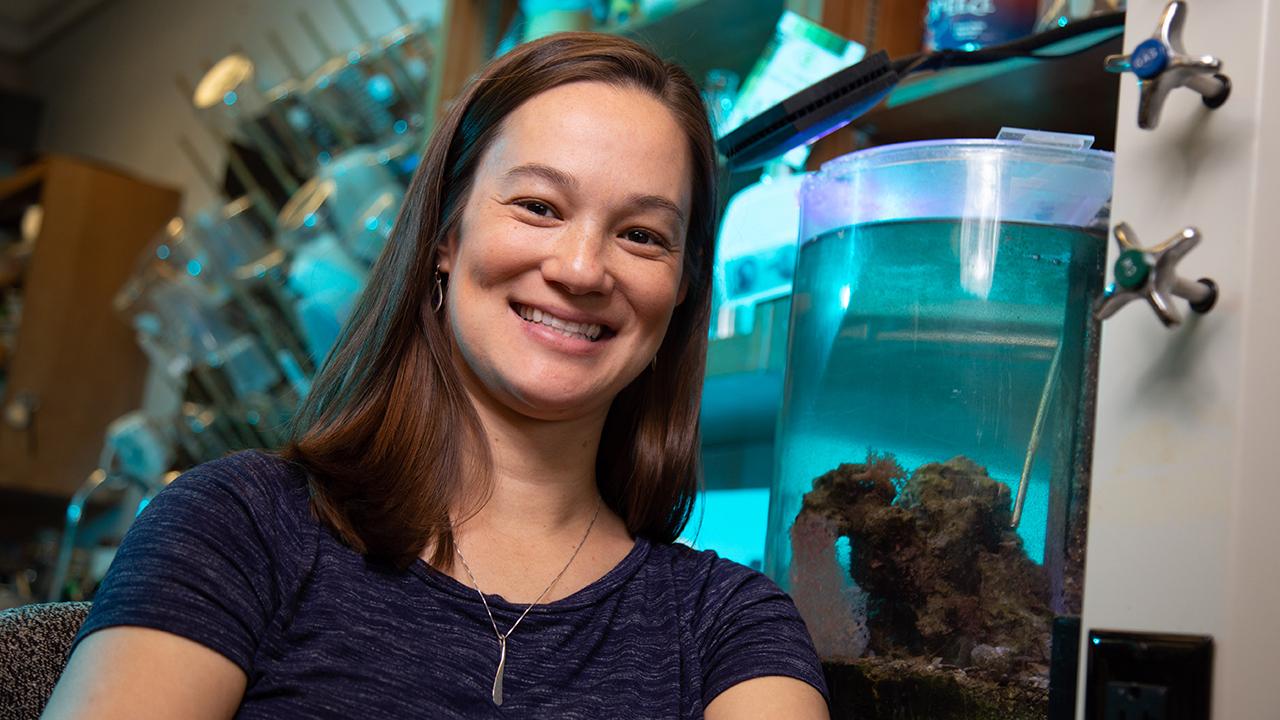
UC Davis Ecologist Awarded Packard Fellowship
University of California, Davis, evolutionary biologist Rachael Bay has been awarded a 2021 Packard Fellowship in Science and Engineering by the David and Lucile Packard Foundation. The fellowship offers Bay, assistant professor in the Department of Evolution and Ecology, College of Biological Sciences, an opportunity to advance her work on the role of human action on evolutionary trajectories of species.
“Rachael Bay’s broad expertise in field ecology, genomics and organismal biology places her among our campus’s leaders in understanding the effect of climate change on an array of marine organisms,” said Mark Winey, dean of the College of Biological Sciences. “In short, she’s done and continues to do wonderful and impactful work. We’re thrilled to see her receive this prestigious fellowship.”
Bay will receive $875,000 over five years to support her work on marine invertebrates. Bay is one of the 20 innovative early-career scientists and engineers who received the award this year.
“It’s pretty humbling to be included among an illustrious line of scientists that have received a Packard fellowship in the past,” said Bay, who is also affiliated with the Coastal Marine Sciences Institute at UC Davis.
Bay leads a group of researchers at The Bay Lab, which aims to gain insights into how organisms survive in environments and how anthropogenic changes in the environment impact individuals, populations and species. She is particularly interested in coral reefs to see how they respond to the pace of climate change by combining a broad geographical perspective with a deep cross-population and cross-species evolutionary approach.
How corals respond to warming oceans
To understand how different species of corals respond to increasing ocean temperatures, Bay emphasizes pinpointing genes in each species to help predict the future of coral reefs under different climate change scenarios. Her lab pairs genomic analysis with physiological experiments, ecological observations and large-scale environmental data.
Bay has been visiting field sites to dig deep into how genes and the environment interact with each other. She said that the study helps her understand the correlation between coral thermal tolerance traits and their genomic and epigenomic basis.
“The Packard fellowship not only allows us to broaden our geographic scope, but also enhances our ability to establish long-term presence in a single place and monitor real-time dynamics of a coral population over a longer period of time,” Bay said.
Her lab is working on a few local projects, such as understanding the evolutionary dynamics of intertidal organisms during marine heat waves, which have been a frequent occurrence in the last few years. The researchers are also studying birds, urchins and seagrass that live across environmental gradients to learn about how species adapt to rapid environmental change.
“If we can dig deeper into the differences between different populations that allow them to live in particular environments, we can try to predict what happens next, and that is really exciting for us,” Bay said.
The Packard Fellowships in Science and Engineering program was designed in 1988 to support the blue-sky thinking of scientists and engineers whose research over time has led to new discoveries that improve people’s lives and enhance our understanding of the universe.
Media Resources
- The Bay Lab
- Rachael Bay, Evolution and Ecology, rbay@ucdavis.edu
- Andy Fell, News and Media Relations, 530-304-8888, ahfell@ucdavis.edu
